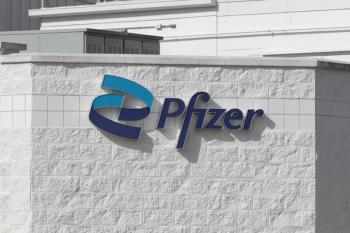
Vascular endothelial growth factor (VEGF) inhibitor, Eydenzelt (aflibercept-boav), is now approved to treat retinal disease marked by excessive blood vessel growth in adults.

Vascular endothelial growth factor (VEGF) inhibitor, Eydenzelt (aflibercept-boav), is now approved to treat retinal disease marked by excessive blood vessel growth in adults.

Emergency Medicaid spending represented only 0.4% of total Medicaid expenditures in 2022, rising to 0.9% in states with higher populations of undocumented immigrants.

Back surgeries to address age-related pain in older adults aren’t just risky, they're expensive too, according to a recent study from the Lown Institute.

In this interview, Steven Buslovich, M.D., CMD, MS, CMO of Senior Care at PointClickCare describes AI’s role in care transitions within healthcare systems and how AI can reduce readmission rates.

Medicare beneficiaries face confusion during the Annual Enrollment Period, with significant plan changes ahead for 2026. Understanding options is crucial.

Older adults living with HIV face higher rates of opioid prescribing and opioid use disorder than their HIV-negative peers, according to new research from Rutgers University.

Repatha is now available for a monthly cash price of $239, through AmgenNow and GoodRx.

Three researchers have been awarded the Nobel Prize in Physiology or Medicine 2025 for the discovery of regulatory T cells, the FOXP3 gene mutation and the role they play within autoimmune diseases.

Here’s what you missed this week on Managed Healthcare Executive.

The exact cause of amyotrophic lateral sclerosis (ALS) has long remained a mystery, but new research demonstrates that there is an autoimmune component to the disease.

Menopause is not the main driver of multiple sclerosis disability progression according to a recent study published in JAMA Neurology.

Humana announces its 2026 Medicare Advantage and prescription drug plans, focusing on stable benefits, preventive care and enhanced member support.

Aetna has released the details of its Medicare Advantage plans for 2026, which focus on preventative care and drug cost savings.

Rhapsido is the first and only Bruton’s tyrosine kinase (BTK) inhibitor approved for chronic spontaneous urticaria (CSU).

UnitedHealthcare reveals its 2026 Medicare Advantage plans, featuring $0 premiums, expanded benefits and enhanced access to affordable healthcare options.

Pfizer only offered to discount six products through the Most Favored Nation program, and healthcare policy experts suggest the real-world impact remains uncertain.

SCAN Health Plan will expand its 2026 Medicare Advantage benefits with $0 copays and higher dental, vision and allowance coverage amid funding and coverage cuts from larger insurers such as UnitedHealthcare and Aetna.

Enrollment in Medicare Advantage Special Needs Plans (SNPs) has grown steadily since becoming permanent in 2018, now accounting for 21% of Medicare Advantage enrollees, with recent growth driven by chronic condition SNPs surpassing dual-eligible SNPs due to changing CMS requirements, according to a new KFF report.

In this conversation with Kristin Begley, chief commercial officer at Capital Rx, we discussed the company’s recent rebrand to Judi Health and how it reflects broader trends in technology-driven, transparent PBMs.

As part of the Most Favored Nation pricing effort, Pfizer has agreed to invest in U.S. manufacturing and to allow access to its drugs at a discount through a new direct-to-patient website.

Changes in eye blood vessels signal early risk for Alzheimer’s disease, offering a noninvasive biomarker for early detection and intervention.

Amneal submits a BLA for a new Xolair biosimilar, promising affordable treatment options for asthma and allergies, enhancing patient access and competition.

Insulin will be available through Sanofi’s Insulins Valyou Savings Program starting January 1, 2026.

Here’s what you missed this week on Managed Healthcare Executive.

The short-term study is believed to be the first to evaluate both interventions combined for people with mental illness.

Evkeeza is now approved for the treatment of homozygous familial hypercholesterolemia (HoFH) in patients as young as 1 year old.

Recent analysis reveals Medicaid's impact on mortality, highlighting the need for diverse research methods to inform policy changes effectively.

Tavapadon is an investigational, novel, once-daily treatment option for Parkinson’s disease, which currently affects more than 1 million Americans.

The expiration of ACA tax credits threatens $32 billion in healthcare revenue, risking coverage for millions and increasing uncompensated care costs.